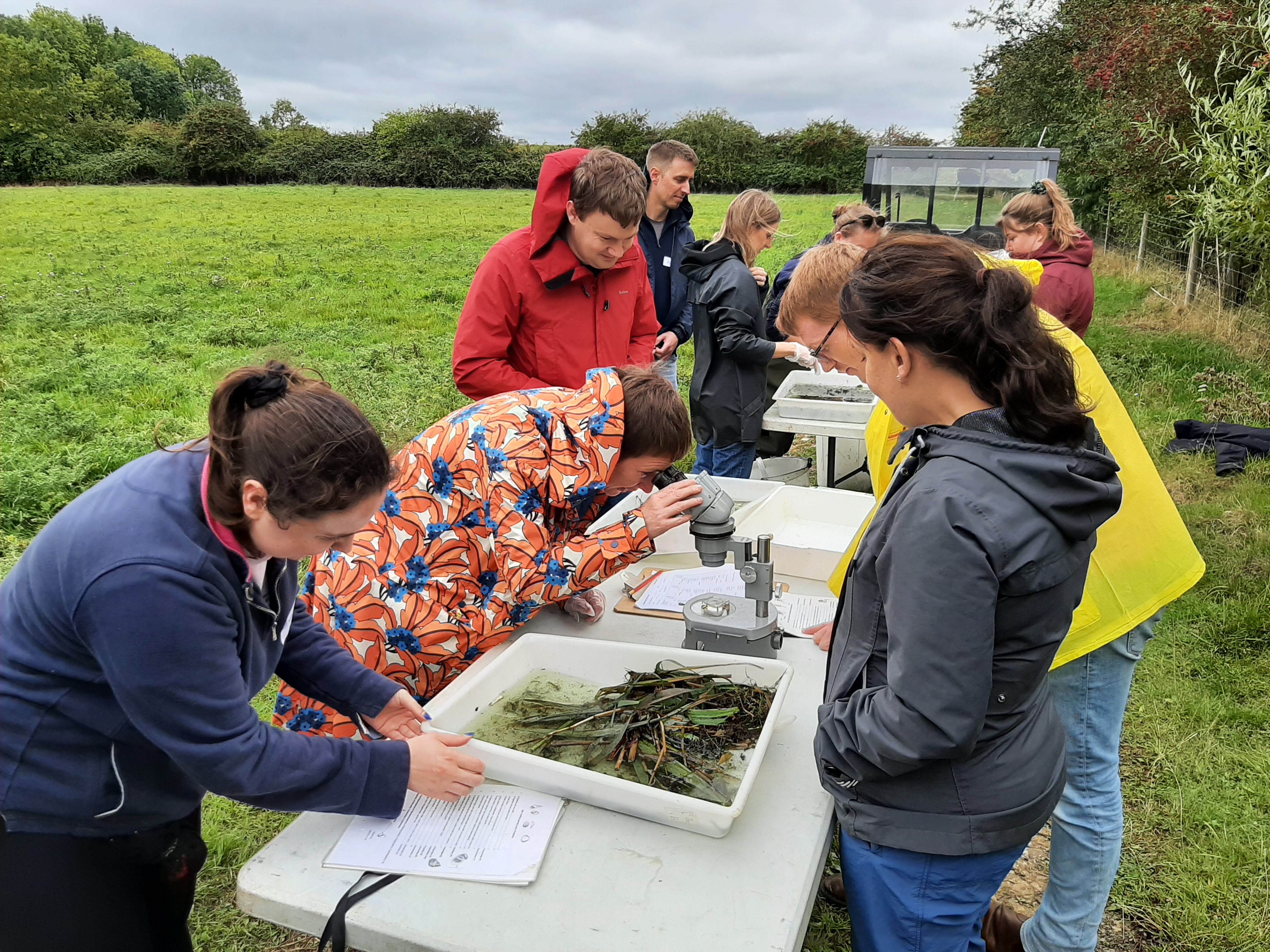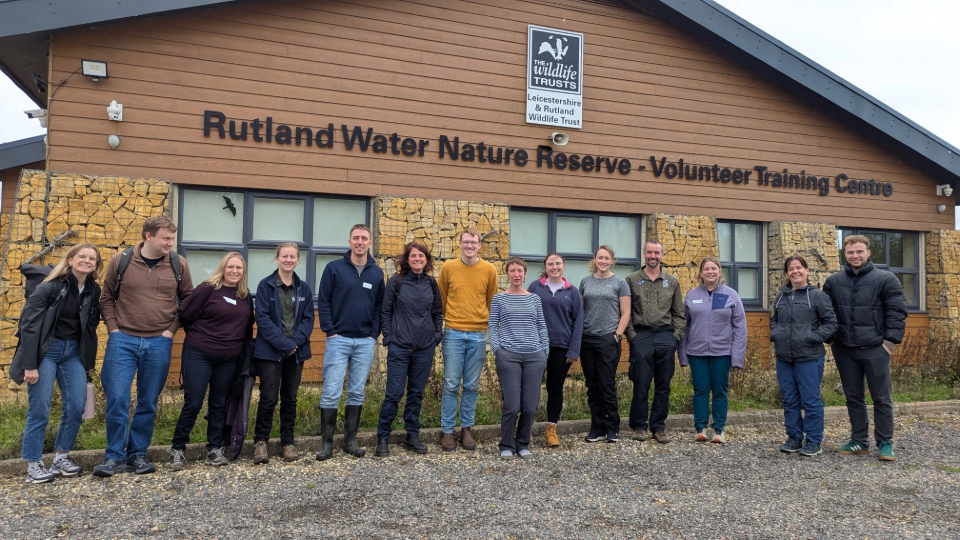On 17th September 2025, Tim Sexton (LRWT) and I had the pleasure of hosting a knowledge exchange day at Rutland Water Nature Reserve. The event brought together colleagues from the Department for Environment, Food and Rural Affairs, the Environment Agency and LRWT from a range of teams and backgrounds, with the shared aim of exploring how research, monitoring, and policy can be more effectively connected to support the stewardship of our aquatic ecosystems.
From the outset, the day felt collaborative. After a warm welcome and short introductions, we set the scene with two brief talks: Tim shared insights into water quality monitoring and management at Rutland Water, while I spoke about my research on water quality and algal dynamics, highlighting some novel tools that might be applicable within the Water Framework Directive (WFD). This set the tone for a day grounded in real-world challenges and solutions.
One of the most enjoyable parts of the morning was the microscope session, where participants explored diatom samples and reflected on how both traditional taxonomic and newer DNA-based approaches can help us understand ecological change. It was energising to see people from different backgrounds sharing perspectives while peering down microscopes or debating the role of biological indicators in water quality assessments.
The afternoon fieldwork reinforced the value of hands-on knowledge exchange. Supported by Beth Fox (Assistant Species and Recording Officer, LRWT), Tim demonstrated how to collect and identify macroinvertebrates, showing how the species we find related to water quality and how this fits within the WFD. He also highlighted how citizen and community scientists can make a real difference by gathering additional records that support water quality managers and expand monitoring networks. Working outside and standing at the water’s edge together reminded me how much richer our conversations become when we can step outside the meeting room and directly engage with the environments we are seeking to protect.

Dr. Savannah Worne demonstrating how to collect a diatom sample.
Discussion highlights
Perhaps the most valuable part of the day came in the open discussion towards the end. Here, participants explored shared challenges and opportunities, drawing out themes that highlighted the importance of collaboration across scales and sectors.
- Challenges in water quality
The conversations revealed just how complex these pressures are, and how uneven progress can be, particularly when multiple stressors interact. We also touched on the bigger question of what we want from our water bodies, recognising that priorities may differ between places and communities. Chemical and biological quality elements under the WFD were seen as valuable in tracking key issues, though at times, conflicts between these indicators can also complicate or even hinder effective action. - The future of biological quality elements in the WFD
Building on our ‘field and lab’ sessions earlier in the day, we discussed how biological quality elements—and the use of citizen science and novel technologies—might shape future updates to monitoring and assessment. There was strong enthusiasm for innovation and flexibility, with methods such as eDNA, stable isotopes, and citizen science offering exciting opportunities. At the same time, participants raised important questions: how can we ensure new approaches are comparable to existing methods, so that changes in monitoring do not create misleading impressions of improvement? And how can such data be used effectively within regulatory and legislative frameworks? - Science–policy integration
A recurring theme was how researchers, regulators, and managers can work together more effectively. We reflected on what good knowledge exchange looks like, how priorities can be aligned, and how data might be more openly shared. It was clear that stronger integration is needed between national agencies, local authorities, and academia—but equally that each level faces different pressures, from day-to-day site management to national strategic oversight.

Policy colleagues getting hands on with macroinvertebrate identification, led by Tim Sexton and Beth Fox.
Reflections
I left Rutland Water struck by the richness of discussion and by the clear tension between detail and scale. Local managers face immediate challenges such as nutrient inputs and monitoring constraints, while DEFRA and other agencies must take a strategic view across regions. Both perspectives are vital, and I was reminded of the role science and academia can play in bridging them—offering fine-scale insight for local action while also informing national decision-making.
The day reinforced that knowledge exchange is a two-way process. When scientists, policymakers, and practitioners share expertise openly, we can identify gaps, co-create solutions, and build trust. In such a complex and pressured field as aquatic ecosystem management, this dialogue is essential. I came away with a renewed appreciation for these conversations and optimism that, by continuing them, we can strengthen the link between evidence and action.
I’d really encourage fellow researchers to explore knowledge exchange opportunities and to get in touch with the Loughborough University Policy Unit, who have been hugely supportive in helping me connect my research with policy and practice. Engagement, building relationships, and hosting events like this are not only rewarding but also a powerful way to make research more meaningful and impactful.
